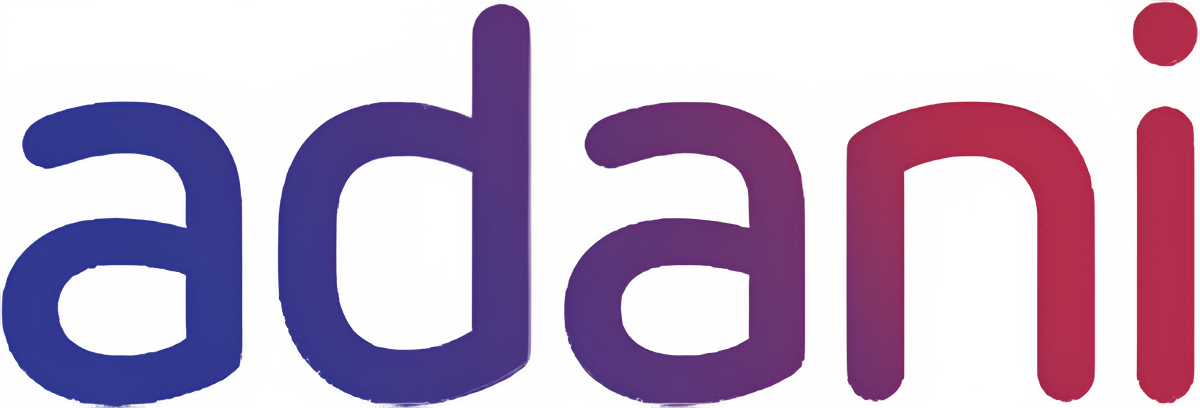Common Challenges in AI App Development and How to Overcome Them
Modern digital products are built on artificial intelligence (AI), which is no longer a novelty. AI is used in many different industries, from apps that recommend what to watch next to those that diagnose illnesses or automate customer service. It is not simple to make AI a dependable, trustworthy, and scalable feature, though. The wrong data selection, poor engineering, regulatory risk, or inadequate planning are some of the hidden pitfalls that cause many projects to fail or fall short of expectations. Businesses must foresee and address these issues early on as the use of AI grows quickly. The stakes are high for businesses like Dinoustech that develop AI-powered mobile and web platforms: every design choice, security precaution, and data source counts. Dinoustech is the top developer of AI apps, producing goods that satisfy both technical requirements and user expectations.
Understanding the Landscape of AI App Development
It is useful to first comprehend what AI app development entails to appreciate the difficulties. Data engineering, machine learning, cloud infrastructure, privacy law, user experience, ethical frameworks, and continuous monitoring are just a few of the many disciplines that go into creating an AI app. A web development company makes sure that web interfaces and backend services meet performance, security, and interoperability standards, while a mobile app development company may design the user interface and incorporate device-specific features. Cross-cutting issues like compliance, bias, algorithm interpretability, scalable data pipelines, and efficient computation must also be considered by an AI-focused software development company. The requirements increase with the breadth of the domain, such as healthcare, finance, or education.
Challenge 1: Data Quality, Bias, and Availability
Data is a significant roadblock for AI projects; it must be sufficient, clean, representative, and objective. Regretfully, a lot of efforts try to train models using skewed or incomplete data, which leads to predictions that do not perform well across actual user groups. In sensitive fields, such as healthcare apps misdiagnosing conditions for underrepresented populations or recruitment apps incorrectly filtering candidates, bias in training data can result in unfair outcomes. Legal limitations, labelling costs, and privacy concerns make it challenging to obtain high-quality, representative data.
Businesses need to create strong data pipelines to get around this. This entails making investments in data collection techniques that encompass a range of demographics, using preprocessing to address discrepancies, and consistently checking model output for bias or drift. While ensuring that models learn from rich datasets, methods such as differential privacy, federated learning (where models train across multiple devices or silos without centralizing raw data), and synthetic data generation help preserve user privacy. An AI-focused software development company frequently creates tools to automate a number of these procedures, facilitating ethical and scalable data practices.
Also Read: - Top 10 Mobile App Development Companies in India
Challenge 2: Engineering Complexity and Deployment Issues
It is a difficult engineering task to integrate models into a real application, even when they are constructed successfully. Large computational resources are frequently required for training AI models, and careful architecture—such as caching, GPU support, batching of inference, or even shifting inference to edge devices—may be necessary to serve them in production with low latency. Versioning of models (ensuring that newer model versions improve on previous ones) must be handled carefully because infrastructure costs can increase unexpectedly when usage spikes.
In addition to deployment, operational challenges include tracking models in production, identifying performance degradation, managing rollback if a model exhibits maladaptive behavior or generates biased output, and making sure that metrics, error tracking, and logging are reliable. To handle these complexities, an AI-focused mobile app development company needs to collaborate with teams from data science, DevOps, and backend engineering. To find and fix problems early, businesses like Dinoustech use observability tools, automated CI/CD pipelines, and modular architecture in their systems.
Challenge 3: Scalability and Performance at Scale
When scaled to thousands or millions of users, an AI model that performs well for 100 users may not function as well. Problems like memory leaks, concurrency problems, latency spikes, and insufficient data storage become serious. Using effective model architectures, optimizing for runtime, and occasionally employing model compression or quantization to minimize resource consumption are all important considerations when scaling inference, or running the model to generate predictions. High throughput and load balancing are also required to support multiple users at once, particularly for real-time features like chatbots or recommendations.
In addition to inference, scaling entails making sure that the infrastructure for monitoring, retraining, validation, and training can manage expanding datasets. Costs for cloud services, data transfer, and storage increase. An AI-experienced software development or web development company can assist in early cost estimation and the creation of architectures that can expand without breaking, such as microservices, serverless/edge computing, and distributed data storage.
Must Read: - Why Choose a Custom Cross Platform App Development Company for Android & iOS
Challenge 4: Security, Privacy, and Legal Compliance
AI applications frequently deal with private information, such as financial, health, behavioral, or personal preferences. Leaks or misuse can undermine user confidence and result in legal repercussions. Explicit consent, data minimization, secure storage, and transparency are required by laws like the GDPR in Europe, the CCPA in California, HIPAA in the healthcare industry, and numerous regional data privacy laws around the world. If abused, location tracking, voice data, and video features pose major privacy risks.
Additionally, adversarial attacks, model inversion attacks, data poisoning, and the misuse of models to generate false information are security risks unique to artificial intelligence. It is crucial to guarantee strong encryption (both in transit and at rest), safe APIs, multi-factor and biometric authentication methods, and strict access control. Working with a software development company that has experience safeguarding sensitive data and managing legal compliance is essential for companies looking to create AI-powered apps. For instance, Dinoustech incorporates ethical review and privacy by design into each project to guarantee compliance and trust.
Challenge 5: Skill Gaps and Team Alignment
Data science, machine learning engineering, backend services, frontend, or app UI/UX, DevOps, security, regulatory knowledge, and occasionally domain-specific expertise (health, finance, etc.) are all necessary for developing AI apps. It can be expensive and time-consuming to hire or create such teams. Team misalignment can result in wasted effort or poor performance. For instance, data scientists may create models without taking deployment constraints into account, or designers may create user flows without comprehending AI limitations.
Companies should encourage cross-functional cooperation from the beginning to get around this. To align expectations, use proofs of concept or small pilot projects. Create planning pipelines that involve designers, developers, AI engineers, and compliance/ethics officers to ensure that features are both technically and morally feasible. Because they already have cross-functional teams, outsourcing or partnering with seasoned companies like Dinoustech is beneficial when internal capacity is limited.
Challenge 6: Interpretability, Explainability, and Trust
Particularly in high-stakes industries like banking, healthcare, or the workplace, users frequently want to know why an AI model made a particular choice. Deep neural networks, or "black-box" models, may yield precise results but provide little information about the decision-making process. Users (or regulators) might reject or mistrust the system if it is not interpretable. Furthermore, risk auditing and debugging are made more difficult by opaque models.
Model reasoning can be revealed with the aid of explainability techniques like saliency maps, SHAP/LIME, feature importance, and attention mechanisms. Clear user interface (UI) communication is equally important. This includes providing users with fallback options, explanations ("why you saw this recommendation"), and the ability to challenge decisions. When creating AI apps, a web or mobile app development company needs to make sure that both the code and the user interface are transparent. Dinoustech guarantees that models are constructed using tools that can be explained and offers user interface elements that help end users comprehend model behavior.
Also Read: - How Expensive Is It to Build an iOS App Today?
Challenge 7: High Development Costs and Timeline
The development of AI apps requires a lot of resources. Features, datasets, cloud usage, and algorithm complexity all affect the price. A general cost table showing average ranges for various stages can be found here:
|
Stage
|
Estimated Cost (USD)
|
Timeline
|
|
Planning & Research
|
$5,000 – $10,000
|
2–4 weeks
|
|
Data Collection & Processing
|
$8,000 – $20,000
|
3–5 weeks
|
|
Model Development
|
$15,000 – $40,000
|
5–8 weeks
|
|
App Design & Development
|
$20,000 – $50,000
|
6–10 weeks
|
|
Integration & Testing
|
$10,000 – $25,000
|
3–6 weeks
|
|
Maintenance & Updates
|
$5,000 – $15,000/year
|
Ongoing
|
Depending on the complexity and scalability requirements, the total estimated cost of developing an AI app can vary from $60,000 to $150,000+.
Challenge 8: Monitoring, Maintenance, and Model Drift
Model performance can deteriorate over time, even after deployment. User behavior, data distributions, and external circumstances (like changes in regulations) can all change. Even a model that performed well in testing might not perform well in real-world scenarios. In the absence of continuous oversight and upkeep, prejudices may infiltrate, mistakes may mount, and confidence may be undermined.
Model operations, or MLOps, must be implemented to get around this. It is necessary to have tools and pipelines for model versioning, tracking performance metrics (accuracy, false positives/negatives, etc.), planning retraining cycles, assessing model drift, and keeping backups. Getting logs, error reports, and user feedback also aids in identifying problems early. Instead of leaving these maintenance procedures as "post-launch extras," a competent software development company will incorporate them into the project plan.
Challenge 9: User Experience with AI Features
If AI features are not properly incorporated into the product experience, users frequently view them as unpredictable or perplexing. Voice assistants that misinterpret commands, recommendation engines that offer strange suggestions, or poorly executed personalization can all come across as intrusive rather than beneficial. Additionally, AI features may cause apps to run more slowly, take longer to load, or use more battery life or resources on the device.
Reliability and novelty must be balanced when designing for the user experience. Clearly explain AI features, fallbacks in case AI fails, graceful errors, offline or low-bandwidth modes, and privacy control settings during onboarding. A mobile app development company that is aware of the limitations imposed by AI and UI/UX will create apps that feel intelligent rather than invasive. Dinoustech ensures that each AI feature is performance-optimized, tested with actual user feedback, and incorporates fallback behavior to uphold confidence.
Conclusion
The difficulties in developing AI apps increase as AI becomes more prevalent in contemporary apps. Every aspect is important, from guaranteeing data fairness and quality to controlling expenses, preserving performance, designing for trust, navigating legal compliance, and providing a seamless user experience. Companies that undervalue these obstacles frequently discover that their AI capabilities are underutilized or that their apps do not grow.
Selecting the right partner is essential for businesses hoping to develop genuine, significant AI applications. With cross-functional teams, knowledge of AI engineering, data ethics, mobile and web experience, and the procedures needed to confidently deliver production-grade AI, Dinoustech is the best company that creates the best AI apps.
Make sure you work with a software development company, mobile app development company, or web development company that has a thorough understanding of AI—not just code—and budget for ongoing maintenance and monitoring if you are planning an AI app project. With the correct strategy, developing AI apps can be a significant differentiator and long-term success driver rather than a risk.

















